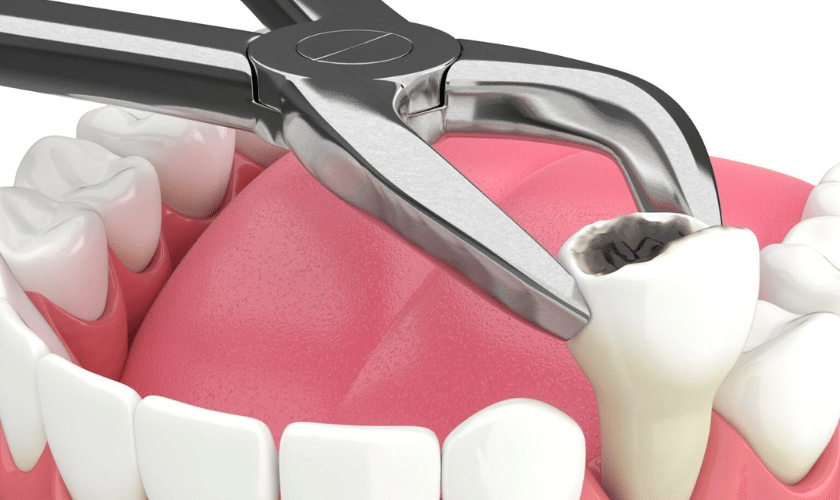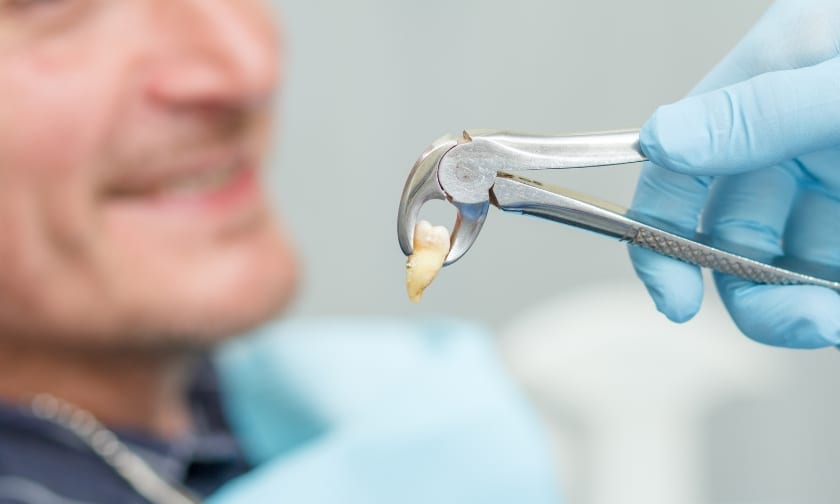
Tooth Extraction Aftercare: Dos and Don’ts
Tooth extraction is a common dental procedure performed for various reasons, including severe decay, damage, or overcrowding. While the extraction itself is relatively straightforward, proper aftercare is crucial for ensuring a smooth and speedy recovery. Following the dos and don’ts outlined below can help promote healing, reduce discomfort, and prevent complications.
The Tooth Extraction Recovery Timeline
Recovering from a tooth extraction can vary depending on factors like the complexity of the procedure and individual healing abilities. Typically, the recovery timeline follows a general pattern. Immediately after the extraction, you may experience some bleeding, which should taper off within a few hours. Swelling and discomfort are common during the first few days, peaking around the second or third day post-extraction. Applying ice packs and taking prescribed pain medications can help manage these symptoms.
Within the first week, the initial healing process begins, and any stitches may be removed if necessary. It’s essential to stick to soft foods and avoid strenuous activities to promote healing. By the end of the first week, most of the swelling and discomfort should subside.
In the second week, you may notice significant improvements in your condition. While some residual swelling and discomfort may persist, you should be able to resume normal activities gradually. However, it’s crucial to continue practicing good oral hygiene and follow any post-extraction care instructions provided by your dentist or oral surgeon.
By the third week, most patients experience a substantial reduction in swelling and discomfort. The extraction site starts to heal further, and you may begin to reintroduce firmer foods into your diet. However, it’s essential to continue being cautious to avoid any complications.
Within four to six weeks, the extraction site typically fully heals, and any lingering symptoms should dissipate completely. Your dentist Butler may schedule a follow-up appointment to ensure proper healing and address any concerns.
The Do’s & Don’ts of Tooth Extraction Aftercare
Dos:
Follow your dentist’s instructions: Your dentist will provide you with specific aftercare instructions tailored to your situation. Follow these guidelines diligently to promote healing and minimize the risk of complications.
Control bleeding: Bite down gently on a clean gauze pad placed over the extraction site to help control bleeding. Replace the gauze as needed and continue this process until the bleeding stops.
Apply ice packs: To reduce swelling and alleviate discomfort, apply an ice pack to the affected area in 15-minute intervals during the first 24 hours following the extraction.
Maintain oral hygiene: Continue to brush your teeth gently, avoiding the extraction site. Rinse your mouth with saltwater several times a day to keep the area clean and aid in healing.
Eat soft foods: Stick to a diet of soft, easy-to-chew foods for the first few days after the extraction. Avoid hot, spicy, or acidic foods that may irritate the extraction site.
Stay hydrated: Drink plenty of water to stay hydrated and promote healing. Avoid using straws, as the sucking motion can dislodge blood clots and hinder the healing process.
Take prescribed medications: If your dentist has prescribed antibiotics or pain medication, take them as directed to manage pain and prevent infection.
Don’ts:
Avoid vigorous rinsing: Refrain from rinsing your mouth forcefully or using mouthwash during the first 24 hours following the extraction. This can disrupt blood clot formation and delay healing.
Do not smoke: Smoking can impede the healing process and increase the risk of complications such as infection and dry socket. Avoid smoking for at least 72 hours after the extraction, if not longer.
Limit physical activity: Avoid strenuous activities and exercise for the first few days after the extraction to prevent excessive bleeding and discomfort.
Do not touch the extraction site: Resist the temptation to touch or prod the extraction site with your tongue or fingers. Doing so can introduce bacteria and increase the risk of infection.
Avoid hard, crunchy foods: Steer clear of hard, crunchy, or sticky foods that can irritate the extraction site or get lodged in the socket, causing discomfort or infection.
Do not drink alcohol: Alcohol consumption can interfere with blood clot formation and increase the risk of bleeding. Avoid alcoholic beverages for at least 24 hours after the extraction.
Proper aftercare following a tooth extraction is crucial for ensuring a smooth and speedy recovery. By adhering to the dos and don’ts outlined in this guide, you can minimize discomfort, reduce the risk of complications, and promote optimal healing of the extraction site. Remember to follow your dentist’s instructions carefully, maintain good oral hygiene practices, and avoid activities that may hinder the healing process. With patience and diligence, you can navigate the post-extraction period with confidence, knowing that you’re taking proactive steps to support your oral health and overall well-being.
FAQs:
Q: How long does it take for the extraction site to heal completely?
A: The healing time varies depending on factors such as the complexity of the extraction and your overall health. In general, the extraction site may take anywhere from a few days to a few weeks to heal completely.
Q: What are the signs of complications after tooth extraction?
A: Signs of complications may include excessive bleeding, severe pain or swelling, persistent fever, or foul-smelling discharge from the extraction site. If you experience any of these symptoms, contact your dentist promptly.
Q: Can I brush my teeth normally after a tooth extraction?
A: While it’s essential to maintain oral hygiene, you should avoid brushing the extraction site directly for the first 24 hours. After that, you can gently brush your teeth, being careful around the extraction site.
Remember, proper aftercare is crucial for a successful tooth extraction recovery. By following these dos and don’ts and staying in touch with your dentist, you can promote healing and minimize the risk of complications. If you have any concerns or questions about your recovery process, don’t hesitate to reach out to your dentist for guidance and support. Your oral health is worth the extra care and attention during this time of healing.



